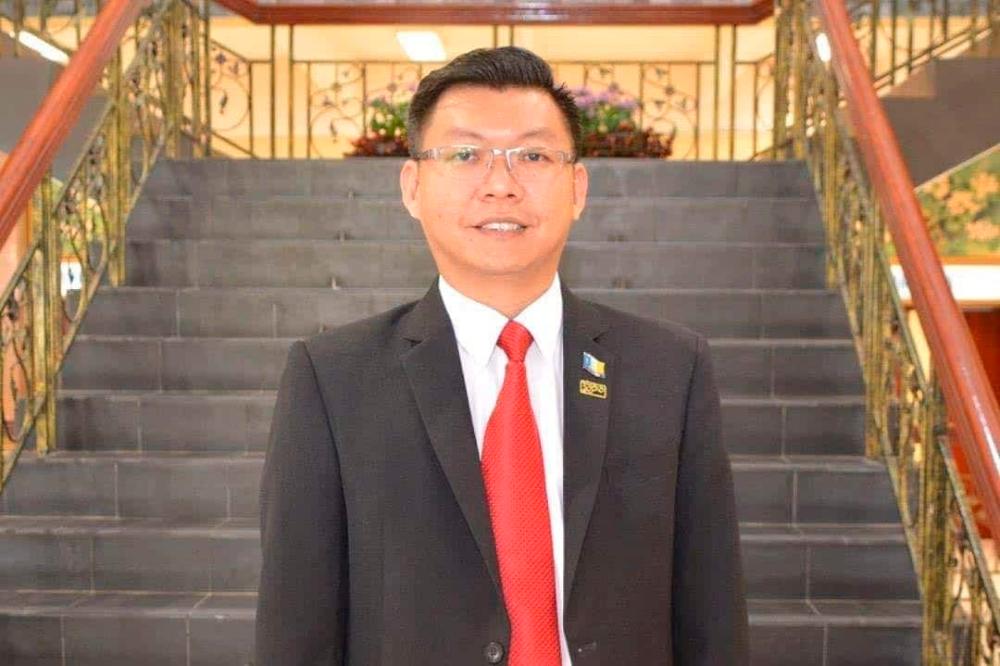PETALING JAYA: The issue of the Penang state government selling off 1,100 acres of land being detrimental to the state and economy is a malicious act of misdirection and framing by MCA and Gerakan, Komtar Assemblyman Teh Lai Heng(pix) said today.
Teh, who is also the Political Secretary to Penang Chief Minister Chow Kon Yeow, was responding to MCA Vice-President Datuk Tan Teik Chengwho accused the state of selling off valuable land in order to create an illusion of state economic growth, calling Penang a “Property developer’s government”.
The DAP assemblyman said the land sale will help push the economic growth of Penang while at the same time providing income for the state. The sales will help to boost local economic growth, provide better living conditions, attract foreign investors and ensure more job opportunities for locals, he pointed out.
“The sold land will be used to build not only factories, but some are used to build affordable houses such as the lands at Jalan SP Chelliah and Gat Lebuh Sandilands. These lands are also bought from the state to build worker hostels, food courts, colleges,private hospitals, IKEA and many more,” Teh said in a statement today.
He retorted that land selling is carried out by all state governments.
“How else will foreign companies build their factories on local soil if they did not first purchase land from the state government?” he asked.
Teh also responded to Penang Gerakan Chairman Oh Tong Keong’s remarks in the Chinese print media that the act of Penang government selling land to PDC is akin to the left hand selling to the right hand.
“Stating that this is a required procedure as stated in Land Acquisition Act 1960, whereby when the state needed to use any land including state owned land, they must transfer it to the land administrator. Oh Tong Keong should have known about this since Penang was once under Gerakan government,” he said.
Teh also pointed out that during the State Assembly held last week, Chow had drafted a four-point and five-step strategy to increase state revenue.
“The first of which would be for any state land sold to first go through the Valuation and Property Services Department (JPPH) and have the land priced at premium market value. At the same time the state will also sold the land through open tender to maximize the revenue generated.
“The second strategy is the transfer of dormant claimed industrial land to PDC. These dormant land will not generate any tax revenue so long as there are no suitable investors to transfer it to. By transferring the land over to PDC, we can collect land taxes consistently.
“Third is the reclassification of land from town/village land to city land. This is to be fair towards residents and it will not affect the areas at outskirts or at towns but rather the land at the edges of cities such as Bukit Mertajam or Bayan Baru.
“The fourth strategy involves the conversion of interim register ownership from undisclosed land titles. Currently there are tens of thousands of land titles that did not go through the proper registration proceedings as stated in the National land Code 1965. Of them, a section of land owners can no longer be found. therefore, through interim register transfer of rights which will take 3 to 5 years, the state could benefit in the process by reclaiming any land titles whom owner can’t be located,” he added.
Teh said the five steps that will be carried out by the state to boost income will be: to monitor closely state taxation, increase state revenue through strategic investing, actively reclaim tax arrears, announcing any unclaimed deposits and request higher allocations from the central government.
He also stated that if Tan agrees that every state has to provide the stability for their people to work and live in peace, then he should be more proactive in requesting equal tax distribution as part of the ruling coalition.
He said according to the tenth schedule in our Federal Constitution titled Grants and Sources of Revenue Assigned to States, we can see that a large amount of tax collected actually goes to the federal and not the states, these includes any sales and service taxes (SST) and any private or business income taxes.
“You can see that Penangites providing a lot of tax revenue to the federal as we are one of the top contributors of our national income tax, therefore we should be allocated our fair share of resources for the state’s future development. In fact I had suggested multiple times or a more fair distribution of tax revenue by returning 10% to 20% of income tax collected back to the state,” Teh added.









